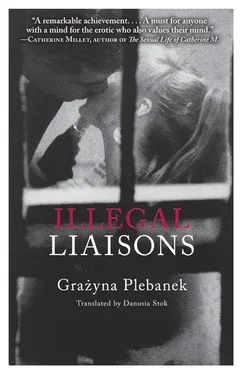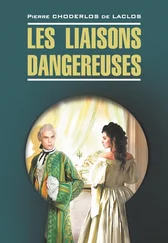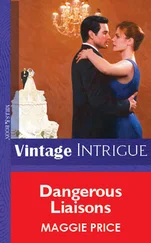His students appeared after the holidays in practically the same line-up. Cecile said it was rare for people to go back to writing after the holidays, just like when learning a foreign language.
Jonathan entered the building with a certain thrill. The stone statues in little hats seemed to greet him; the man sitting in the glass-fronted kiosk marked “Information” welcomed him as one of his own. A moment later, gray-haired Geert, sun-tanned Ariane, Jean-Pierre in the immortal jacket that served him throughout all the seasons of the year, and British Kitty, now with longer hair, walked in; only the oldest participant, Nora, was missing. Jonathan asked whether they’d written anything during the holidays – they answered with smiles full of embarrassment, and Ariane pulled a thick notebook bound in cream canvas from her bag.
“My daughter gave this to me,” she said. “I’ve been writing in it for some time now.”
“What are you writing?” They leaned toward her; Ariane opened the book. The sentence on the first page looked like embroidery on a kitchen wall-hanging.
“What’s that maxim?” asked Kitty.
“It’s a sentence from The House of Spirits . I love that book!”
They leaned over the entry.
“… ‘if you call things by their name, they materialize …,’ ” Geert translated the beginning.
“… ‘and you can no longer ignore them because …”,” continued Kitty.
“ ‘If,’ ” Ariane corrected her. “ ‘If, however, they remain in the realm of words unuttered …”
“ ‘… with time they may vanish into thin air.’ ” Geert adjusted his glasses.
They fell silent. A tram rumbled past the window.
“That fits in with the former subject we studied.” Jonathan smiled. “To ‘The Semantics of Love.’ ”
“Former?” Ariane pulled herself up. “But that’s why I’m writing in this book!”
“Really?” Jonathan was pleased.
Ariane answered with a smile; Geert nodded.
“But isn’t it a stupid subject?” Jonathan let out.
Jean-Pierre stopped sprawling over two chairs and sat up straight.
“It’s broad,” he said after some thought.
Geert agreed.
“A lot falls into place because of it. I hear more, feel more.”
“Me, too.” Kitty laid her hand over her pretty bust. “After all, you did tell me to write with tenderness.”
“Buy yourself something like this.” Ariane leaned over to her, indicating her notebook. “No, wait, I’ll buy it for you!”
“But going back to that quotation,” said Geert, “I wonder … What if things that have been given a name do become real?”
“I’ve got a practical question,” said Ariane. “Does anyone know where Anaïs Nin hid her diaries?”
“In a bank safe,” replied Jean-Pierre. “Before that idea occurred to her she used to keep her secret one somewhere at home covered with an “overt” one. But later on, when she had piles of them – and some of them almost got lost during her travels – she decided to keep them in a bank safe.”
“And Henry Miller, where did he keep his?” asked Ariane.
Jean-Pierre looked at her derisively.
“Wherever he pleased. What did he have to be scared of?”
Megi leaned over the dark desk; there were a few dents in the wood. The shadow of swelling veins slowly appeared on her hands.
“No,” said Jonathan. “I don’t want old furniture in my home.”
Megi tore her eyes and her fingers away from the texture of the surface. Tomaszek’s squeals as Antosia tickled him came from another part of the shop.
“Why not?”
“I’ve already told you.” He looked around because a thud had reached him from the corner where the children were. “Buying antiques is for the senile. Look around, who comes here to buy anything? Nobody but old fogies.”
“Who, please God, don’t speak Polish.”
“It’s a different matter if the piece of furniture’s been in the family for years. But I don’t intend to bring home something I know nothing about.”
“Don’t you think it’s mysterious?”
“About as mysterious as second-hand underwear.”
The search for desks had already taken them two weekends. Jonathan was annoyed, not so much by the antiques to which Megi persisted in returning as by having to drive around instead of resting. A side effect of moving was the need to throw away old things and buy new ones, just as one of the consequences of having children was constantly having to provide them with something new because they kept growing out of their old things. Jonathan was ground down by the cogs of small necessities.
“Let’s go to IKEA then,” sighed Megi, settling in the front seat of their car.
“And didn’t I say so from the start?” muttered Jonathan, at the last moment pulling out a half-empty carton of juice from beneath him.
The aisle in IKEA led them relentlessly through areas packed with wardrobes, beds, chairs, picture frames, while the children managed to find ways of disappearing in one place and leaping out from another. Megi, in the meantime, filled the yellow and blue bag at an alarming rate with what, in Jonathan’s opinion, were unnecessary objects.
“You said you didn’t want any Swedish artificial egalitarianism at home.” He ruffled his hair as she threw a bathroom rug into the bag.
“Jonathan, those old rags on our floor …” she retorted, assessing the shade of the towels stacked nearby.
He turned so as not to look at this when he heard someone calling him. Kitty stood by a shelf of vegetable graters and next to her were a stout man and a chubby child in a buggy.
“We’re looking for a high chair for Emma.” Kitty indicated the little girl who raised her eyes and studied Jonathan intently.
Unknowingly, he answered the child’s gaze with a smile. Little Antosia had stared like that when she was a baby. “Studying objects,” he and Megi used to call it, admiring how she turned a building brick or spoon in her hands – a miniature scientist.
“And we’re looking for desks for the children.” He waved toward Tomaszek, who was swinging on some curtains. Antosia was not in sight, hiding behind bales of material no doubt.
“Let me introduce you,” he turned to Kitty as Megi approached. “This is my wife. And this is Kitty who comes to my writing course.”
“My wife,” he repeated, introducing her to Kitty’s partner.
Once they’d parted ways, Megi forged ahead without a word.
“Megi,” he called, seeing a desk he thought might be suitable for Antosia. “Wait!”
She turned with a long face.
“What’s up?” he asked.
“I began to think you might have forgotten my name.”
He pulled himself up, looking at her helplessly.
“ ‘This is my wife,’ ‘my wife,’ ” she continued, mimicking him. “Have you forgotten what I’m called? I’m Megi!”
She cheered up only once they’d decided on two small desks and were headed to the check-out. On the way, she stopped at the mirror department; he walked up to her and put his arms around her, stroking her hair.
“Well,” he murmured. “That’s out of the way. We coped. As always.”
He looked at her face reflected in the mirror, then took in everything, the two of them, the furniture shop.
“Yes, as always.”
He ran his hand over her cheek, turned, and called the children. He kept calling them even though they’d heard him a long time ago. He called to deafen the thought that had jabbed at him unexpectedly as he gazed into the mirror. Even when you’re old, I’ll love you, he’d thought. Even when you’re old, Andrea.
They circle each other on the pretext of talking; the air sparkles with tension. He comes up to her, pulls up her skirt and caresses her naked butt. His cock presses against his trousers; he swiftly sets it free with his other hand and rubs it against her buttocks. She turns her head and searches for his lips – there they are, the hungry cavern with sharp teeth tears at her lip. She turns and adheres to him with her whole body, slips off her skirt, shakes off her shoes and stands before him in her stockings and summer top.
Читать дальше












